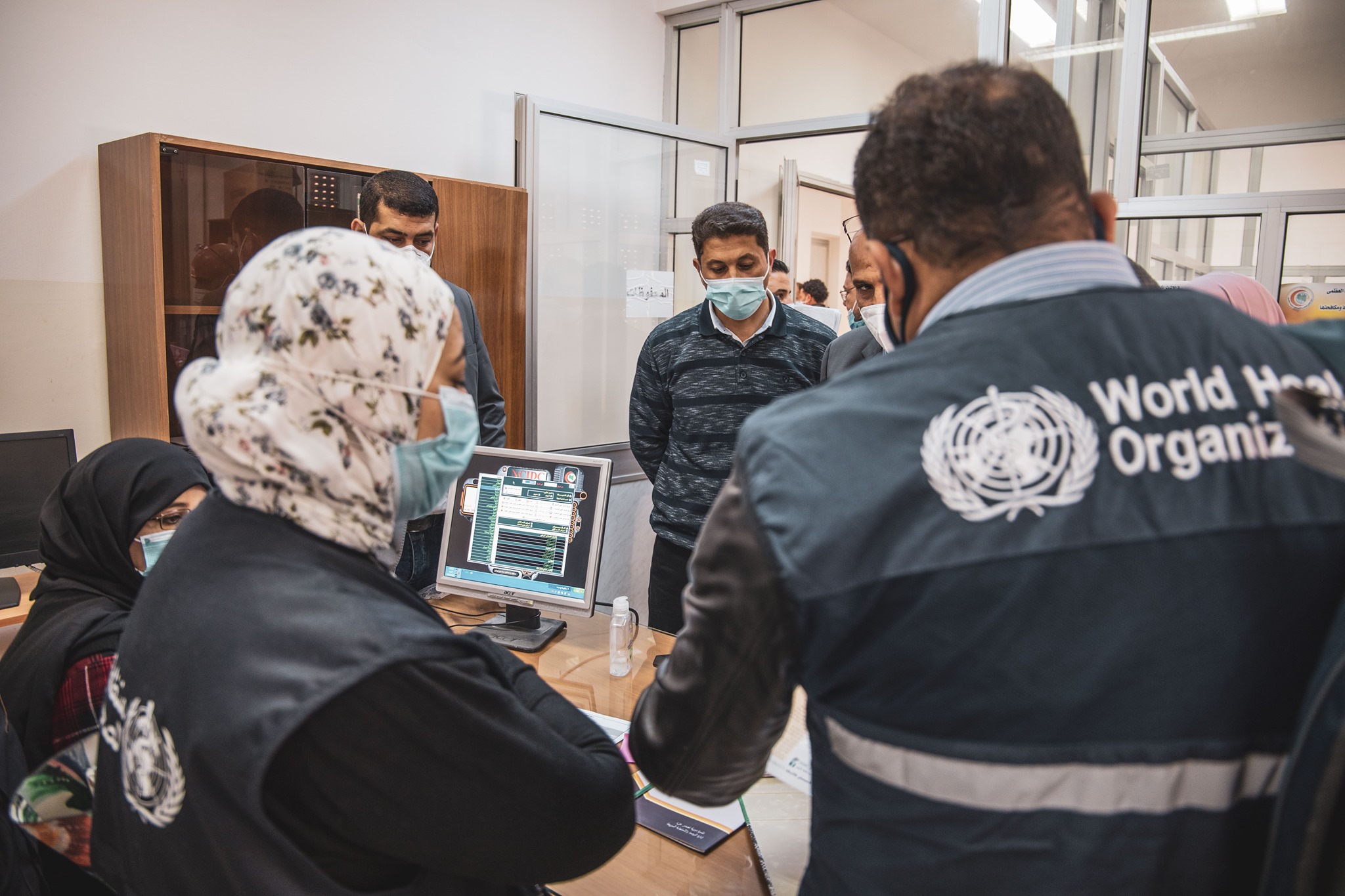 4 May 2021 – WHO has recently completed a country mission to support Libya’s evaluation of the Early Warning Alert and Response Network (EWARN), the only functioning disease surveillance system in the country.
4 May 2021 – WHO has recently completed a country mission to support Libya’s evaluation of the Early Warning Alert and Response Network (EWARN), the only functioning disease surveillance system in the country.
The evaluation, which took place between 25 March and 8 April, was the first of its kind and its objective was to assess the effectiveness and usefulness of EWARN to meet system objectives, assess rapid response team capacity and operation, and provide recommendations and practical measures for improvement. The evaluation was a joint collaboration between WHO, the National Centre for Disease Control, and independent evaluators from academia.
EWARN is a model real-time surveillance system used for the timely detection and verification of potential disease outbreaks caused by emerging and epidemic-prone diseases. EWARN was established in 2016 by the Ministry of Health, with the support of WHO and partners.
During the mission the team held a 2-day workshop to train third party evaluators on the required knowledge and skills to assess the different attributes of EWARN using the WHO evaluation protocol. Participants included 14 academic and public health professionals from all regions of the country.
The training focused on different phases of EWARN evaluation, how to prepare for filed evaluation, data collection forms, analysis plans, quality assurance and report writing. It included practical sessions on how to review documents, administer questionnaires and conduct interviews. At the end of the course, participants developed EWARN evaluation work plans that included monitoring and quality control components.
During the mission WHO also interviewed relevant stakeholders at the National Centre for Communicable Disease Control to identify gaps and challenges in the system’s performance. Several health facilities and hospitals reporting to EWARN were visited as well.
WHO will continue to provide technical support for the strengthening, monitoring and evaluation of EWARN in Libya.
Related links
Libya’s EWARN receives electronic boost from WHO
WHO supports countries transition from EWARN to routine surveillance
Updating the EWARN evaluation protocol for the Region
New EWARN Handbook to enhance quality of epidemiological surveillance in humanitarian emergencies


